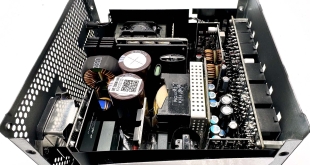We are using the ASRock Z87 Extreme9/ac motherboard to test today's memory kit. It supports RAM from many manufacturers and gives us a large amount of flexibility to tinker with memory multiplier, base clock and timings settings. It is also the first motherboard that we have tested at KitGuru to support the G.Skill memory kit's 2933MHz XMP profile.
The fully-functioning XMP 1.3 profile configures the memory kit for use at its 2933MHz frequency and correct timings.
Windows and CPU-Z registered the memory's functioning settings as correct.
Our system's CPU-Z validation can be found here.
To eliminate memory frequency bottlenecks, we used increased voltages for the CPU VCore, CPU Cache, and CPU Input, as well as ASRock’s automatic System Agent Offset of +0.204V, according to CPUID HWMonitor. The CPU multiplier was dropped to 39x, representing stock levels which are in line with the ASRock motherboard's turbo settings.
Timings were loosened to 13-15-15-35-2T and DRAM voltage was increased to 1.700V.
Unfortunately, not even a 101MHz base clock was able to boot successfully. We did manage one post at the 101MHz base clock (hence obtaining the above screenshots), but the system reported one of the sticks as unstable.
After spending many hours trying to obtain an increased frequency via many different overclocking settings, we were unsuccessful. We tried the 30x divider, an increased base clock and the 29.33x divider, and a 125MHz base clock (from the 1.25x BCLK multiplier) and the divider necessary for 3000MHz, but none of the settings would boot with stability.
Either our 4770K's IMC is incapable of pushing past 2933MHz with stability, or the motherboard doesn't like frequencies above 2,933GHz. Perhaps the memory modules were to blame, although we would expect them to at least show stability with a frequency increase of only 29MHz applied. We would be inclined to blame a mixture of motherboard and CPU for the unsuccessful overclocking attempts.
 KitGuru KitGuru.net – Tech News | Hardware News | Hardware Reviews | IOS | Mobile | Gaming | Graphics Cards
KitGuru KitGuru.net – Tech News | Hardware News | Hardware Reviews | IOS | Mobile | Gaming | Graphics Cards











